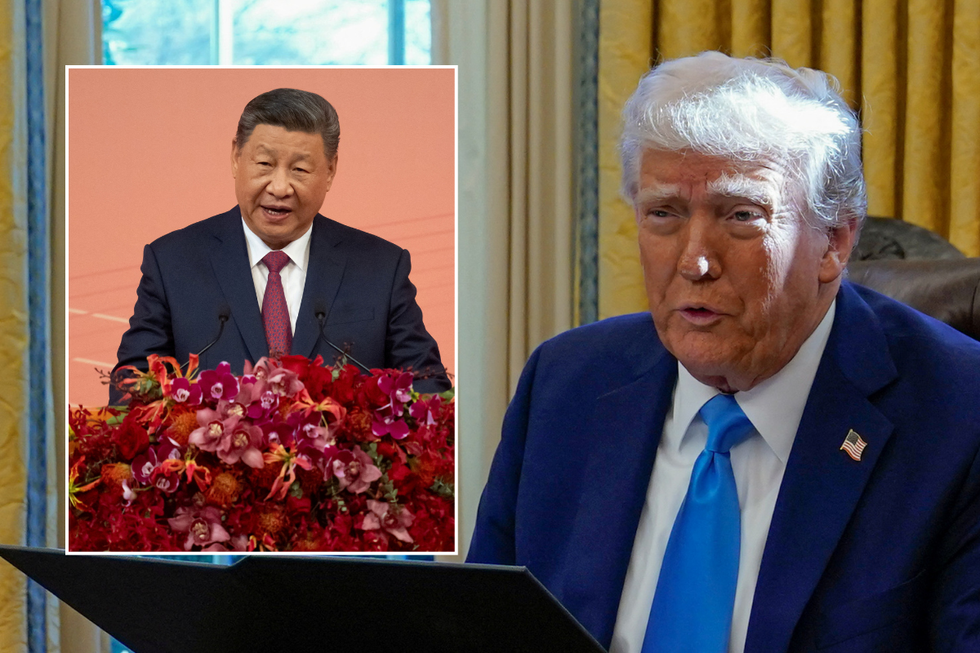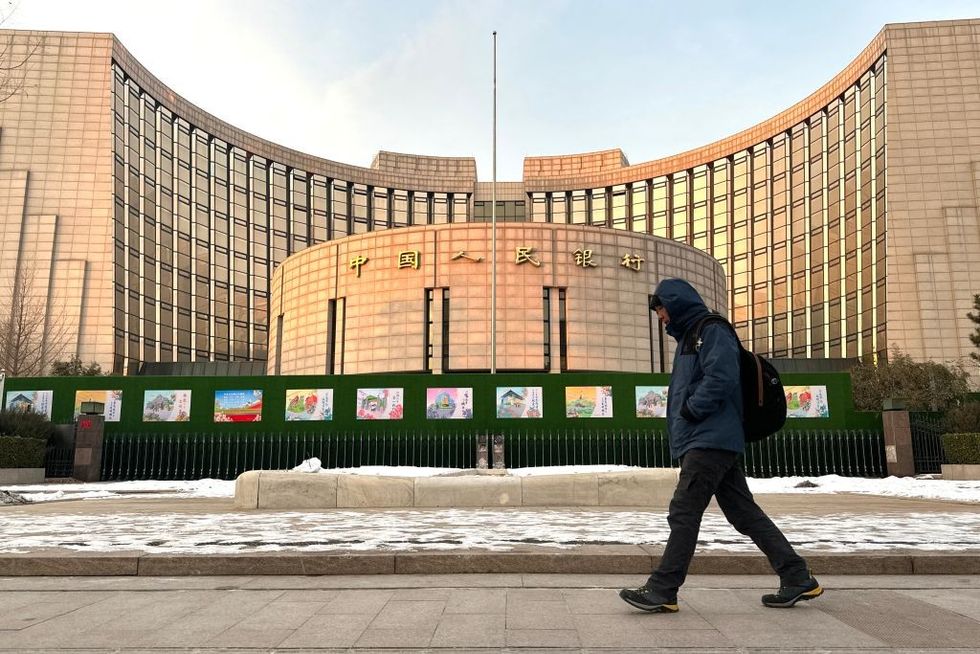George Bunn
Guest Reporter
China has imposed targeted tariffs on American imports and launched an investigation into Google, responding swiftly to President Donald Trump's sweeping 10 per cent duty on Chinese goods.
Beijing announced a 15 per cent levy on US coal and liquefied natural gas, alongside 10 per cent tariffs on oil and agricultural equipment, moments after Trump's tariffs took effect at 5.01am GMT on Tuesday.
The measures represent China's calculated response to Trump's blanket tariff on all Chinese imports, which he implemented citing concerns over illegal drug flows.
Capital Economics estimates China's retaliatory tariffs will affect approximately £16billion of annual imports, compared to the £360billion worth of Chinese goods now subject to US duties.

The new Chinese tariffs target key US energy exports, with a 15 per cent duty on coal and 10 per cent on liquefied natural gas imports.
A further 15 per cent tariff will apply to American crude oil, farm equipment and certain large vehicles shipped to China.
China's measured approach suggests limited economic impact, as US fossil fuel imports represent just 1.7 per cent of China's total crude oil purchases from abroad in 2023.
"The measures are fairly modest, at least relative to US moves, and have been calibrated to send a message to the US," said Julian Evans-Pritchard, head of China Economics at Capital Economics.
The tariffs will not take effect until Monday, allowing time for potential negotiations between Washington and Beijing.
LATEST DEVELOPMENTS:

Beyond tariffs, China has launched multiple countermeasures against American interests. Beijing announced an anti-monopoly investigation into Google, though the tech giant's search services have been blocked in China since 2010.
The Chinese government added PVH Corp, owner of fashion labels Calvin Klein and Tommy Hilfiger, to its "unreliable entity" list, potentially facing sanctions and visa restrictions for foreign employees.
China also imposed export controls on 25 rare metals, including tungsten, which is crucial for aerospace applications.
China produces nearly 90 per cent of globally refined rare metals, though Trump has already moved to secure alternative supplies, offering Ukraine £240billion in support in exchange for rare earth metals.

Trump appeared unfazed by China's response, saying "That's fine" when asked about the retaliatory duties at the White House.
A conversation between Chinese President Xi Jinping and Trump is viewed as crucial for potentially easing tensions.
White House spokeswoman Karoline Leavitt confirmed Xi had reached out to Trump. "President Xi did reach out to President Trump to speak about this, maybe to begin a negotiation. So we'll see how that call goes," she told Fox Business Network.
The development follows Trump's last-minute suspension of threatened 25 per cent tariffs on Mexico and Canada on Monday, where he agreed to a 30-day pause in exchange for border and crime enforcement concessions.
Find Out More...
Beijing announced a 15 per cent levy on US coal and liquefied natural gas, alongside 10 per cent tariffs on oil and agricultural equipment, moments after Trump's tariffs took effect at 5.01am GMT on Tuesday.
The measures represent China's calculated response to Trump's blanket tariff on all Chinese imports, which he implemented citing concerns over illegal drug flows.
Capital Economics estimates China's retaliatory tariffs will affect approximately £16billion of annual imports, compared to the £360billion worth of Chinese goods now subject to US duties.

The new Chinese tariffs target key US energy exports, with a 15 per cent duty on coal and 10 per cent on liquefied natural gas imports.
A further 15 per cent tariff will apply to American crude oil, farm equipment and certain large vehicles shipped to China.
China's measured approach suggests limited economic impact, as US fossil fuel imports represent just 1.7 per cent of China's total crude oil purchases from abroad in 2023.
"The measures are fairly modest, at least relative to US moves, and have been calibrated to send a message to the US," said Julian Evans-Pritchard, head of China Economics at Capital Economics.
The tariffs will not take effect until Monday, allowing time for potential negotiations between Washington and Beijing.
LATEST DEVELOPMENTS:
- Trump sued by left-wing activists over border crackdown as they accuse President of 'power grab'
- NFL chief Roger Goodell hits back at Donald Trump claims over DEI ahead of Super Bowl
- Donald Trump withdraws from UN Human Rights Council as he claims US funding 'disproportionate'

Beyond tariffs, China has launched multiple countermeasures against American interests. Beijing announced an anti-monopoly investigation into Google, though the tech giant's search services have been blocked in China since 2010.
The Chinese government added PVH Corp, owner of fashion labels Calvin Klein and Tommy Hilfiger, to its "unreliable entity" list, potentially facing sanctions and visa restrictions for foreign employees.
China also imposed export controls on 25 rare metals, including tungsten, which is crucial for aerospace applications.
China produces nearly 90 per cent of globally refined rare metals, though Trump has already moved to secure alternative supplies, offering Ukraine £240billion in support in exchange for rare earth metals.

Trump appeared unfazed by China's response, saying "That's fine" when asked about the retaliatory duties at the White House.
A conversation between Chinese President Xi Jinping and Trump is viewed as crucial for potentially easing tensions.
White House spokeswoman Karoline Leavitt confirmed Xi had reached out to Trump. "President Xi did reach out to President Trump to speak about this, maybe to begin a negotiation. So we'll see how that call goes," she told Fox Business Network.
The development follows Trump's last-minute suspension of threatened 25 per cent tariffs on Mexico and Canada on Monday, where he agreed to a 30-day pause in exchange for border and crime enforcement concessions.
Find Out More...
